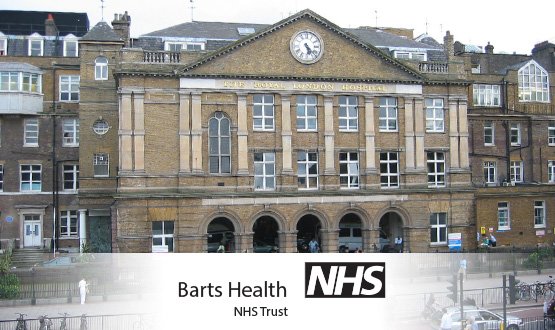An artificial intelligence (AI) research programme has been launched in London which aims to develop the use of the technology in healthcare.
Composed of five projects, the CAP-AI programme is focused on developing the use of AI in healthcare in London with the aim of improving patient care.
This involves project teams from Barts Health NHS Trust and Queen Mary University of London supporting a London-based Small/Medium Enterprise (SME) to deliver their project, with the aim of creating a new product that can be commercialised.
Two projects are already underway – the first led by Vascular Consultant, Sandip Sarkar from Barts and in partnership with AI-start-up Motilent.
This particular project aims to use AI to predict how congenital ascending aortic aneurysm, an unpredictable and potentially deadly condition, is likely to develop in patients.
Another project, is iPlato Healthcare working with Queen Mary which aims to use AI to improve the treatment options for the thousands of patients across the UK with musculoskeletal (MSK) problems.
Sven Bunn, programme director Barts Life Science – the research arm at Barts, said: “This collaboration between the NHS, higher education and AI start-ups makes it possible for us to explore AI’s true potential in healthcare.
“Barts Health is best-placed to deliver revolutionary breakthroughs in AI, due to its diverse patient population serving around 2.5 million people who speak over 60 languages.”
The CAP-AI programme is led by Capital Enterprise, in partnership with Barts Health NHS Trust and Digital Catapult, CAP-AI is jointly funded by the European Regional Development Fund (ERDF) and Barts Charity.
Future projects, due to start over the coming months, will aim to use AI to improve analysis of cardiac MRI scans, monitor online health boards to improve recruitment of suitable patients for clinical trials, and to predict vascular complications for patients with diabetes.
Aside from AI, Barts has also been at the forefront of the use of robotics.
In 2017, it was announced the trust had received a £5 million grant from Barts Charity to buy two Da Vinci Xi Surgical System machines – robotic surgery technology that will be used in gynaecology-oncology, urology, colorectal, hepatobiliary, transplant and head and neck.


11 March 2019 @ 06:25
This is good use of charitable funds and good working together.